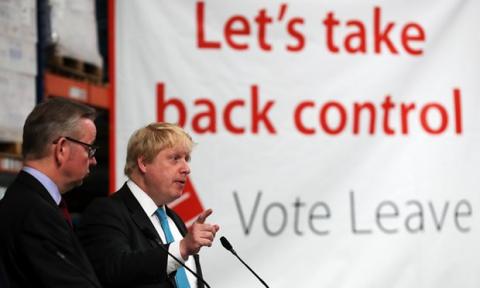What’s wrong with England? Everyone knows we have the best top-flight football in the world. You can see people wearing the shirts of our Premier League teams from São Paulo to Shanghai. Yet the England team has never won an opening game at the European Championship. What is it about the Euros that makes us freeze up?
Northern Ireland and Wales have everything to gain from the competition, but for the English, anything other than winning will feel like a disappointment. We feel the pressure of history bearing down on us. England expects.
That sense of entitlement is even stronger off the football pitch. Our imperial history has left the English with the assumption that we should be respected, that our reputation should go before us, ensuring we eventually come out on top. That’s how it was in the days of empire and that’s how it’s always been in the United Kingdom. In the past decade, however, that expectation has been challenged by expansion and integration in the EU, and by a confident independence movement in Scotland. In response the English have turned inward.
Last year this tension was made manifest in the least British election of modern times. Voters disillusioned with the status quo reached out to smaller parties. In Scotland Labour was cast out by the SNP, but in England the first-past-the-post system prevented a breakthrough for Ukip. Now the referendum has levelled the playing field. For once, the votes of all of the English electorate will actually mean something. Having been ignored by Westminster for so long, is it any surprise that many are angry?
For years the English working classes were taken for granted by New Labour – under the mistaken impression they had no one else to vote for – and patronised by the Tories, who sold them the lie of better services and lower taxation. Successive governments have encouraged the creation of the most deregulated labour market in Europe, undermining the very things that families build their security on: regular work, long-term tenancy, access to education and the support of local social services.
The demand for cheap labour has led to an unprecedented influx of migrants, who have made their homes in areas where house prices and rents are lowest. While the middle classes have benefited from the skills these newcomers have brought, their presence has increased feelings of insecurity among the working class, who see the world changing at an ever greater pace and worry about their children’s future. At the mercy of the invisible forces of globalisation, when someone offers them the chance to “take back control”, they’re likely to respond in the affirmative.
Those leading the push for Brexit are no friends of working people, however. Boris Johnson’s personal credo – “I am pro having my cake and pro eating it” – should have been their battlebus slogan. They are pitching Britain’s exit from the EU as all gain and no pain. They promise the masses that everything they like will be better and everything they hate will be gone, when in truth what will be gone are the last vestiges of the welfare state that their grandparents built. For the leave campaign is driven by libertarians who seek to create, in the name of free enterprise, an even more precarious economy than that which has left so many of the English working class insecure and disillusioned.
In pursuit of their goal the Brexiters have crossed the line between expressing people’s fears and exploiting them, fomenting rage among those who feel left behind by globalisation. The dangers of such a tactic were made all too clear last week. Those who cloak their hatred with the mantle of patriotism tarnish our nation’s great achievements and undermine the principles on which it was built.
While others around them have strengthened their identities through devolution, the English – ignored for so long – have every right to feel hard done by, and their impulsive urge to send a two-fingered message to the ruling class via the referendum is understandable.
But if we wake up on Friday to find that we have voted to leave the EU, the lid will soon be put back on the cauldron of grievance and dissent stirred up by the Brexit campaign, and our electoral system will continue to stifle the will of the English people. With neither a parliament to represent them, nor a method of forming a UK government that ensures everyone’s voice is heard, the English will still be a long way from taking back control of their country.
[Billy Bragg is is an English alternative rock musician and activist. He's currently touring in Australia.]


Spread the word